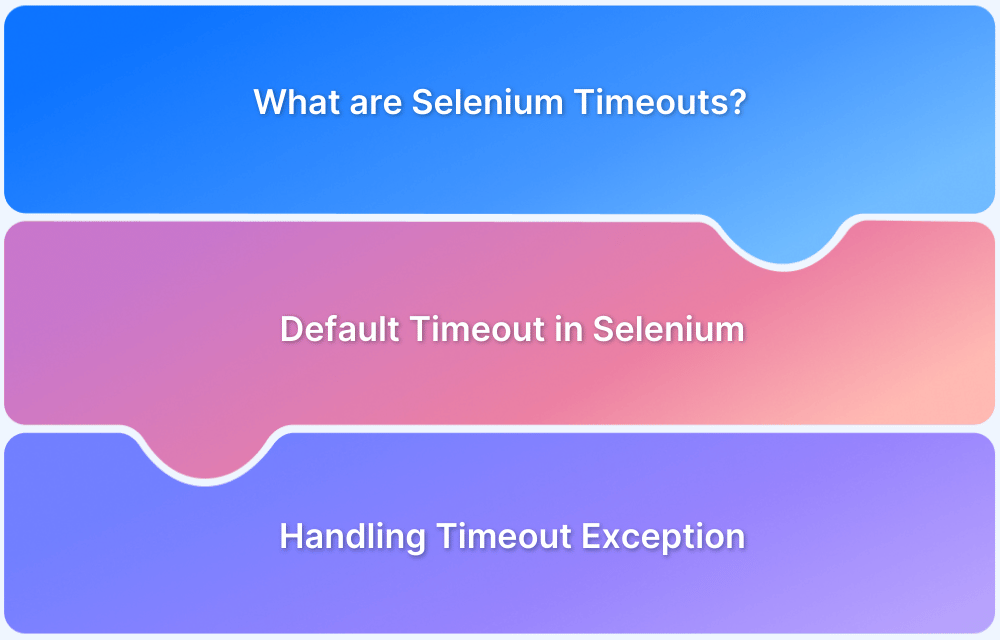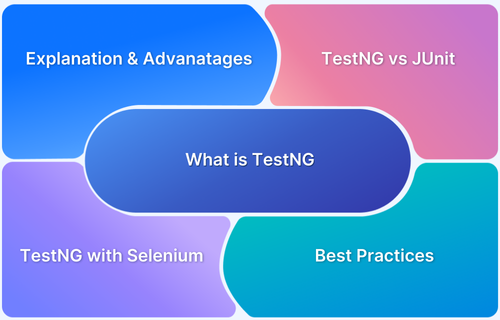What does the test timeOut mean in TestNG?
By Sandra Felice, Community Contributor - December 13, 2024
Timeouts are essential in automation testing to ensure stability and accuracy. They prevent tests from failing prematurely or waiting indefinitely by synchronizing test scripts with application behavior, handling delays, and managing asynchronous processes.
Understanding test timeOut in TestNG
In TestNG, test timeOut feature specifies the maximum allowed execution time for a test method. If the test exceeds the specified time, TestNG automatically terminates it and marks it as failed. The timeout value is defined in milliseconds.
This feature is particularly useful for preventing tests from running indefinitely due to issues like network delays or server timeouts.
Also Read: How to Automate TestNG in Selenium
Example of timeOut in TestNG
import org.testng.annotations.Test; public class TestTimeoutExample { @Test(timeOut = 2000) // Timeout set to 2000 milliseconds (2 seconds) public void testWithTimeout() throws InterruptedException { Thread.sleep(3000); // Simulating a delay of 3 seconds System.out.println("Test executed successfully."); } }
Output:
org.testng.TestTimeoutException: Test exceeded timeout of 2000 milliseconds
In the example above, the testWithTimeout() method is set to timeout after 2 seconds. Since the method contains a Thread.sleep(3000), which causes the test to sleep for 3 seconds, it will exceed the specified timeout and result in a failure. TestNG will throw a TestTimeoutException, which makes the failure more understandable for readers who might not be familiar with this exception.
Test on Real Devices with BrowserStack Automate
If you are a tester or a developer, explore BrowserStack’s Automate platform for efficient timeout management and faster test execution across 3500+ real devices and browsers.
BrowserStack’s Automate platform allows you to set and manage these timeouts while testing across real devices and browsers, ensuring efficient execution and quick feedback.
Learn More: Understanding Selenium Timeouts
Conclusion
Timeouts in TestNG are crucial to prevent tests from running indefinitely, ensuring timely failure of unresponsive scripts. Managing timeouts effectively on BrowserStack enhances test efficiency and reliability by synchronizing with real device behavior, reducing false positives, and optimizing execution time.




